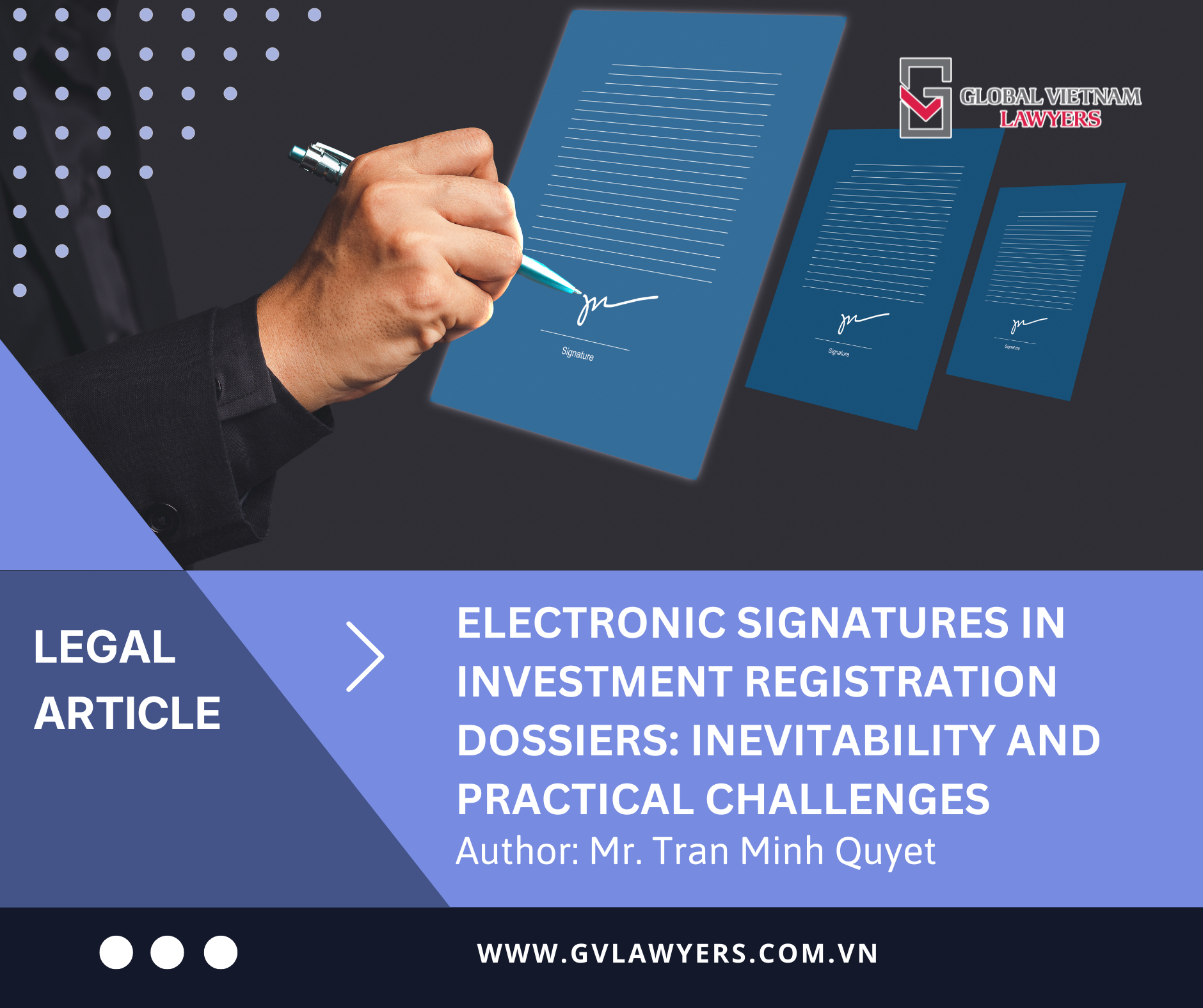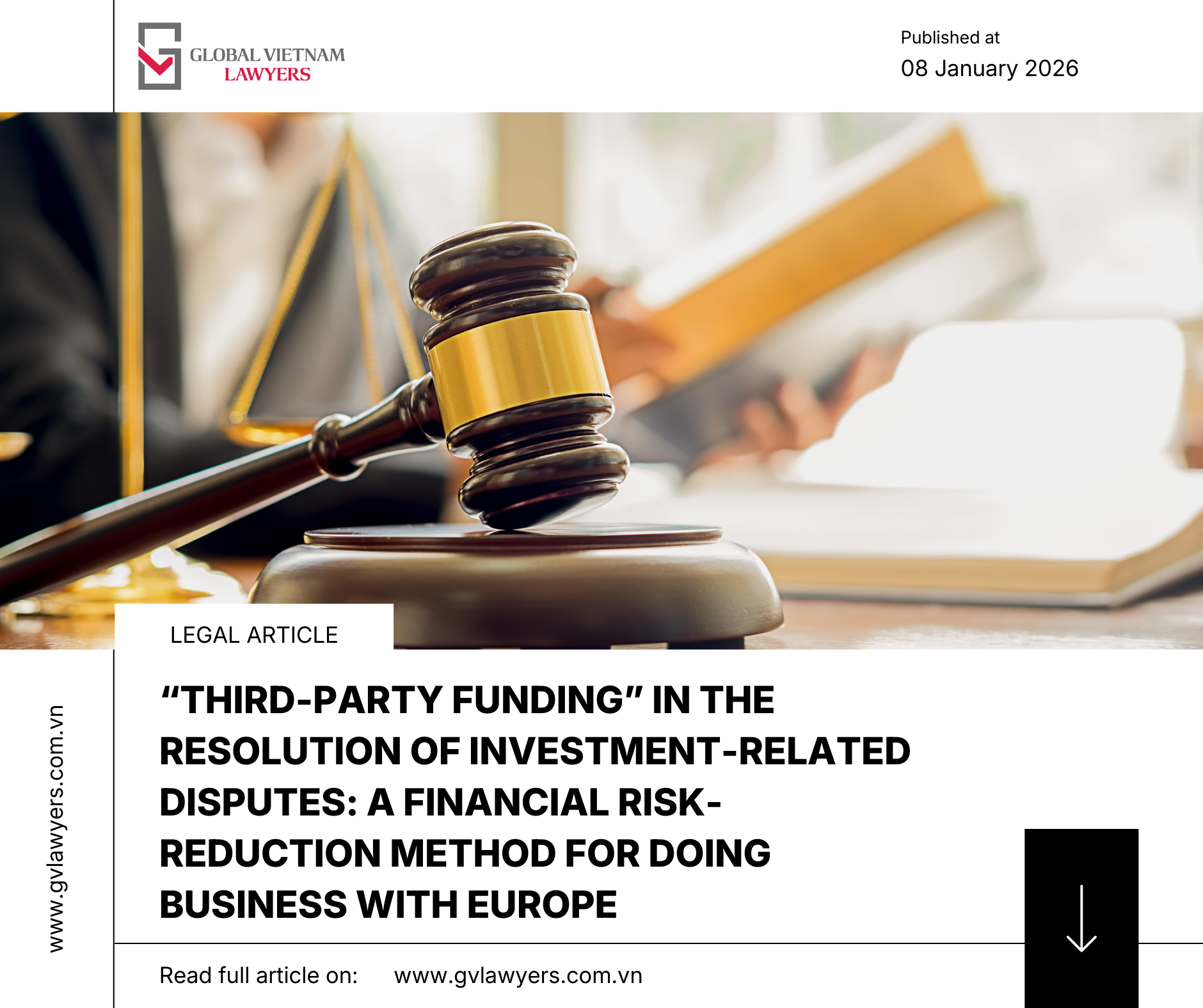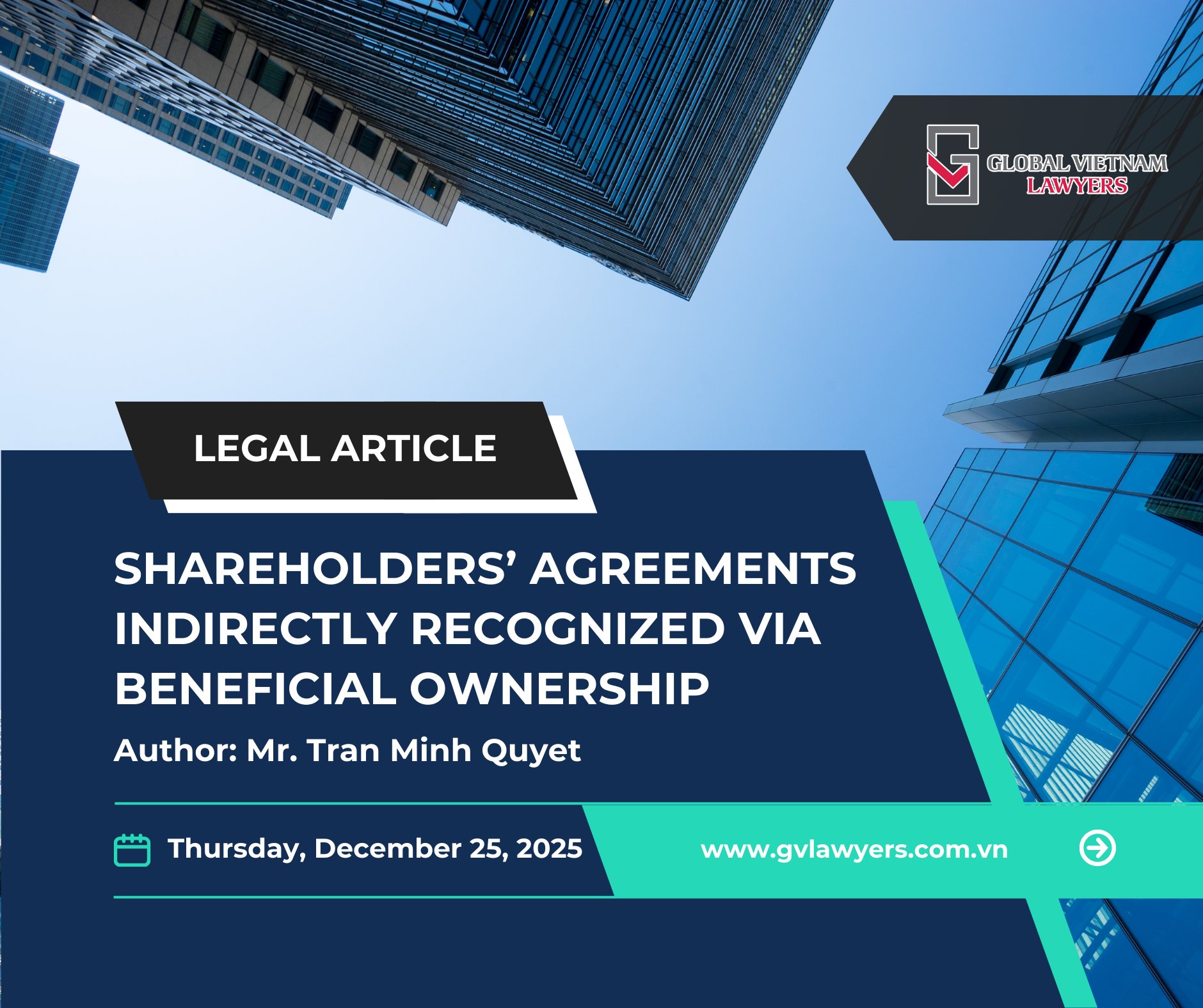GV Lawyers would like to present an article by Mr. Tran Thanh Tung & Mr. Ngo Nhat Minh, entitled: “Businesses need criminal records?” published in Saigon Times on December 19, 2013.
***
Two stories, one question
In his free time, an old pharmacist told us his story of starting a business in 1993 – the establishment of his pharmaceutical manufacturing company. He cannot forget running back and forth to request documents to set-up his company under the previous Law (Law on Company 1990). Besides preparing documents and explaining the organization chart, operation apparatus, plants, warehouses and equipment, he had to entreat the director of a hospital for the confirmation of non-discipline, go for a medical examination to prove his satisfactory health and request for a copy of his criminal record to prove he had no previous convictions and offences.
“The most annoying thing was that competent authority continuously bothered me why there is not any information on civil dispute in my criminal record”[1] But how are civil disputes stated in a criminal record? For the pharmacist to set-up the company, he had to “show up with his extended-family” to commit that there was not any civil dispute that may affect his company. “Until now, I cannot understand why they compelled me to submit a criminal record? Perhaps the business also needs this record?”
By chance we would see the same surprise and testiness with another client, this time from Malaysia – he intended to buy 80% contributed shares of a domestic textile company. He could hardly restrain himself when asking the question “in Vietnam, they choose investor by criminal record, don’t they?” when knowing he had to submit criminal record for share transfer registration to Vietnamese competent authority.
Two businessmen, one Vietnamese and the other a foreigner, but both of them have the same question. So, the question deserves due consideration.
Choosing an investor by criminal record?
Currently, capital contribution and share purchases by foreign investors in Vietnamese companies are regulated under Circular No. 131/2010/TT-BTC dated 06 September 2010 (“Circular 131”). Accordingly, it is the fact that foreign individual investors must procure a copy of their criminal record when involved in capital contribution and share purchases of a Vietnamese owned company.
It is noted that the criminal record is a document issued by a competent authority for individuals, but is used for determining whether they are convicted of a crime or have been criminally investigated? Usually referred to as “previous convictions and offences”, there are numerous issues which need to be clarified relating to foreign investors producing criminal records under Circular 131.
Firstly, the requirement itself is not clear. The Circular does not stipulate the status of the investors\ criminal record – is merely submitting their criminal record sufficient or must they have a “clean” criminal record without any previous convictions and offences.
Secondly, the purpose of the requirement is not clear. Why do Vietnamese authorities need to profile foreign investors? Perhaps a criminal record is used for selecting investors and the Vietnamese authority will only welcome investors with “clean” record and will refuse investors with a “vague” record? Noticeably, under Circular it is unclear whether the Vietnamese authority is entitled to refuse a dossier of share transfers of an investor with a “problem” record or not. It can be perhaps understood that a decision on whether the criminal record is satisfactory or not is decided totally by a competent Vietnamese authority and therefore, the Vietnamese authority has the power to approve or refuse a share purchase by an investor Could empowering administrative bodies to approve or refuse transaction relating to share transfers between private parties give rise to potential abuses of power?
Thirdly, a criminal record is applicable to investors which are individuals; an entity acting as an investor cannot provide a criminal record. As a result, if the Vietnamese authorities refuse an investor which is individual based on their criminal record, it can be considered as a form of discrimination between individual investors and entity investors, especially when both of which have the same nationality.
Fourthly, has this selection had any effect if criminal record is used for selecting investors? In our opinion, the selection is not effective because an “unclean” investor would easily escape from the tie when they invest to Vietnam through their company established outside Vietnam.
Then, it should be considered that “what do we need from investors?”. To be honest, we need investors who have experiences and financial capacity rather than investors with “clean” record.
Furthermore, if the regulation requiring a criminal record is to limit foreigners with previous convictions and offences, it raises the question of what is the exact role of state bodies in-charge of business registration; administration is in fact under security bodies, police bodies and immigration bodies rather than bodies in-charge of business registration.
In our point of view, as the criminal law of each country is different, the nature of criminal convictions stated in a criminal record is thereby different from that which is pursuant to Vietnamese law. It is common in other countries for a person to be jailed for a couple of months for driving under the influence of alcohol. However, is such information appropriate when appraising the qualifications of investors and especially to deny their business in Vietnam? We have tried to understand the connection between a criminal record – the criminal history of an individual – and their investments and business, but it appears there is little in the way of a reasonable relationship between these two issues.
A lesson from history
History has shown that appraising entrepreneurs and enterprises through their criminal records neither ensures a steady intake of quality enterprises, nor improves economical management. The Law on company 1990 and Law on private company 1990 along with numerous requirements on owners did have a significant impact on the economy. A “criminal record” was not a factor to limit an entitlement to capital contribution, capital purchase, enterprise establishment under the Law on Enterprises 1999. With a broaden-mind and free thinking, the Law on Enterprise has created opportunity for hundreds of thousands of enterprises to be established and which have contributed to strong economic growth.
Nevertheless, the lesson from history could not change the old thinking of reviewing enterprises through the lens of their criminal record.
Nowadays, with a far more difficult economic outlook and fierce competition from countries in the region looking to attract investors, any investor with long-term investment into Vietnam should be greatly appreciated. In this current situation we should apply more openly thought processes, rather than maintaining an out-of-date viewpoint.
We believe that the approval or refusal of investors on the ground of information contained in their criminal records is not a good approach. Hence, criminal records regulated as a condition for capital contribution and shares purchase under Circular 131 seems to be unreasonable and unfeasible and it urgently needs to be abrogated.
[1] Article 3, Circular No.04/BYT-TT dated 27 March 1992 promulgated by Health Ministry regulated the standard of the director of a pharmaceutical company as “has not been disciplined or not had any previous civil, criminal conviction” and “ health satisfaction”









